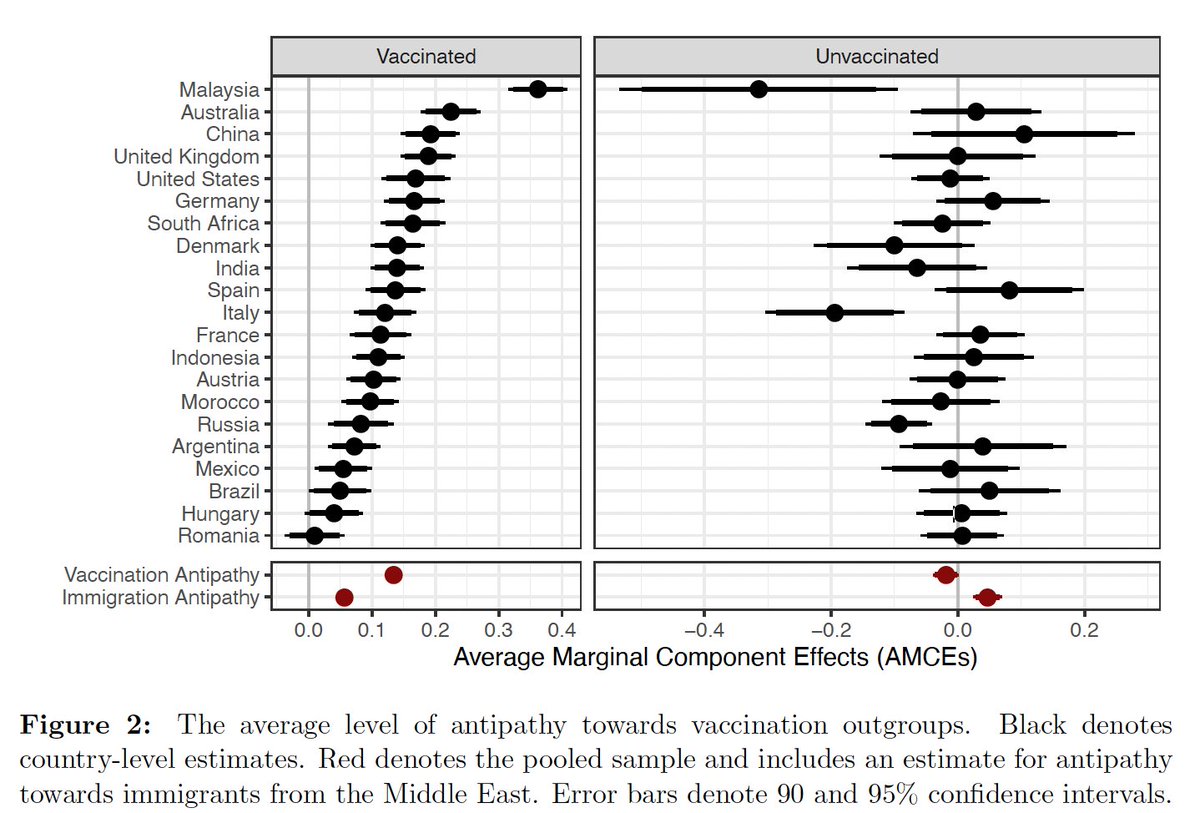
Hvor mange har de seneste dage stillet sig selv spørgsmålet: Ville jeg gribe til våben?
I 2016 stillede vi faktisk 1012 danskere det spørgsmål bl.a. i lyset af, at "Rusland opfører sig mere og mere aggressivt".
Her er hvad de svarede. 👇
🧵 (1/6)
I 2016 stillede vi faktisk 1012 danskere det spørgsmål bl.a. i lyset af, at "Rusland opfører sig mere og mere aggressivt".
Her er hvad de svarede. 👇
🧵 (1/6)
Efter introen, der beskrev en mere ustabil verden med bl.a. et mere aggressivt Rusland, blev det repræsentative udsnit af danskere præsenteret for en række scenarier, herunder dette 👇 (2/6) 
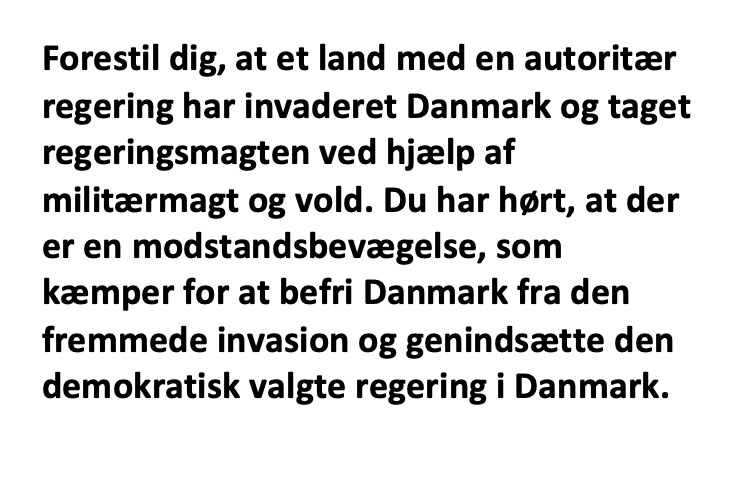
Derefter spurgte vi, om deltagerne forestillede sig, at de ville protestere mod regimet, hjælpe modstandsfolk, deltage i modstandskampen og bruge vold.
31 % forestiller sig, at de "ville bruge fysisk vold for at fremme modstandsbevægelsens mål". (3/6)
31 % forestiller sig, at de "ville bruge fysisk vold for at fremme modstandsbevægelsens mål". (3/6)
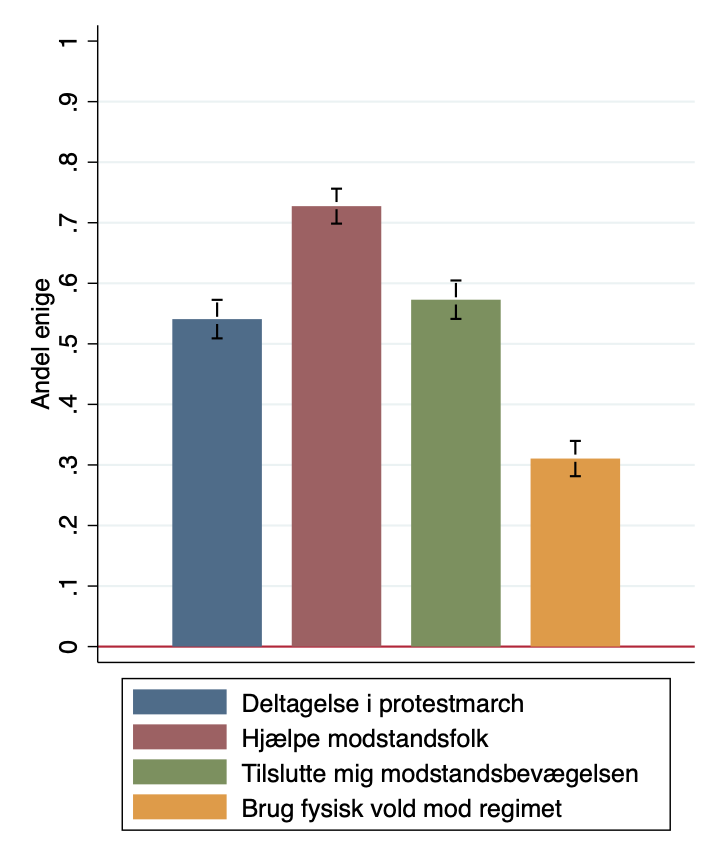
Mænd er - ikke overraskende - særligt tilbøjelige til at forestille sig, at de vil bruge vold mod et fremmed autoritært regime. Blandt mændene er det 46 %. Blandt kvinderne er det blot 16 %. (4/6) 
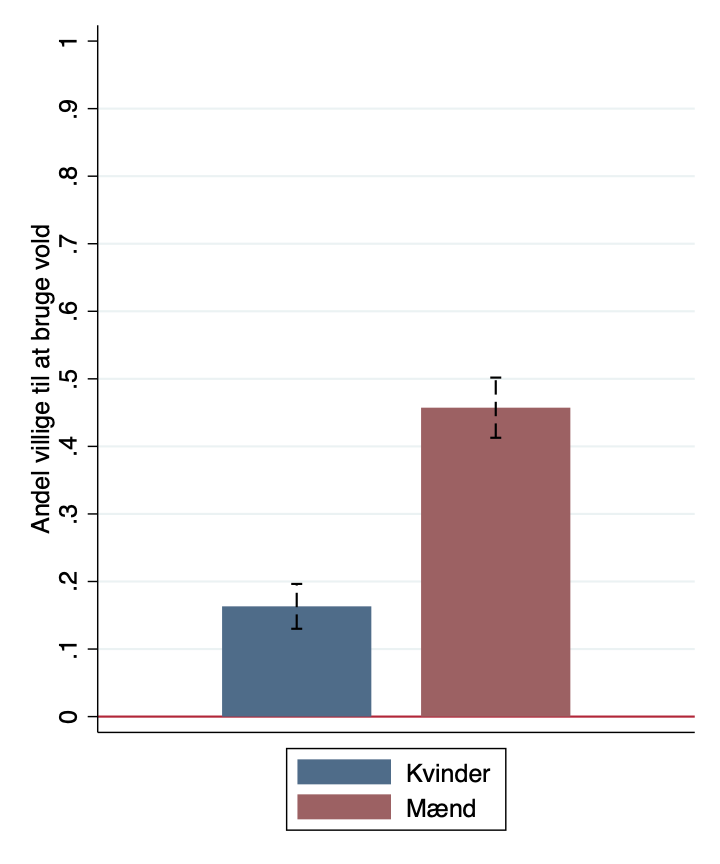
Det er måske mere overraskende, at det særligt er de midalderende, som forestiller sig, at de vil bruge vold. De unge mænd, som ellers generelt er mere risiko-villige, er mere tilbageholdende. (5/6) 
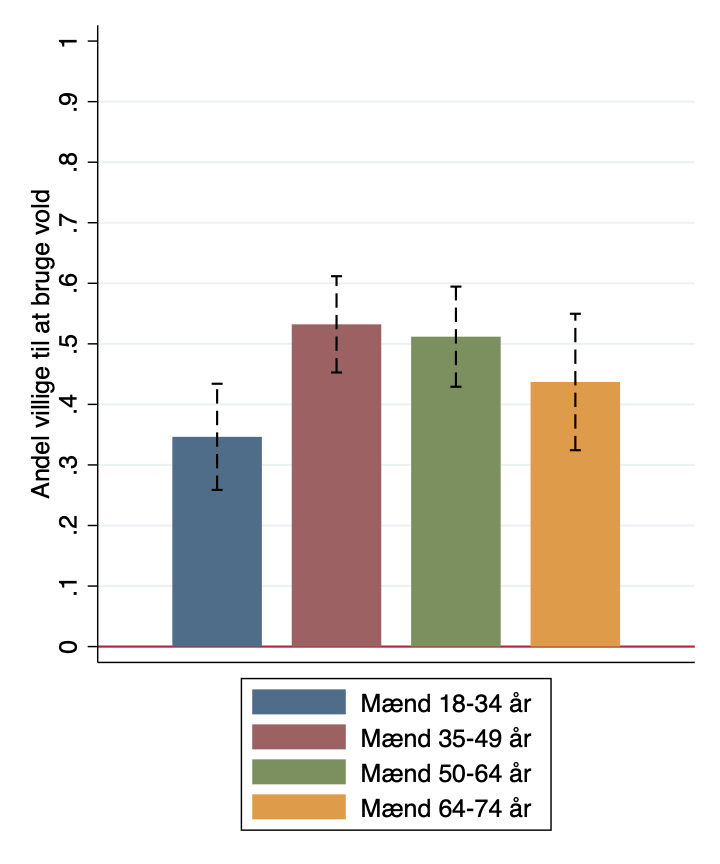
Undersøgelsen er foretaget under andre omstændigheder. Men når folk i dag spørger sig selv - hvad ville jeg gøre? - så tyder dataene på, at der er systematiske forskelle i hvem, der forestiller sig hvad.
Dataene er iøvrigt publiceret her: doi.org/10.1177/095679… (6/6)
Dataene er iøvrigt publiceret her: doi.org/10.1177/095679… (6/6)
• • •
Missing some Tweet in this thread? You can try to
force a refresh


